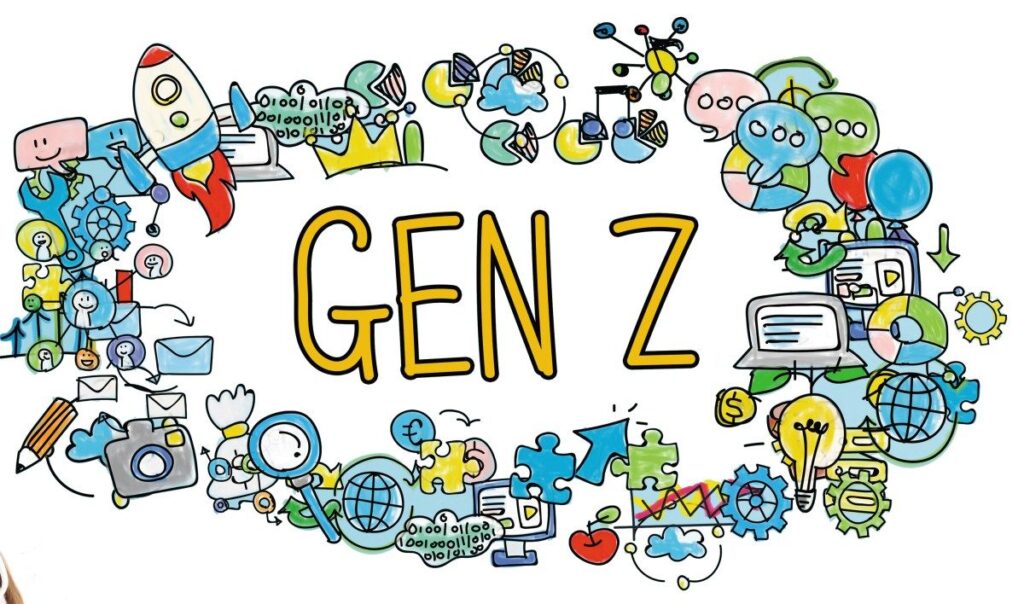A Nation at the Crossroads
Nigeria stands at a pivotal moment in her history. For decades, leaders have come and gone—some swept in by the winds of hope, others engulfed by the storms of failure. But today, as old systems creak and the world turns faster, Nigeria’s greatest asset remains largely untapped: her youth. Gen Z, comprising well over 70 million Nigerians under the age of 25, holds the potential to reinvent our nation. They’re not just Nigeria’s present—they are its future.
Amid this rising generation stands a leader who has shown, through both word and deed, that he believes in the power of young Nigerians. Atiku Abubakar has invested in their education, given them platforms, and vowed to empower them economically. This article unfolds the dramatic interplay between Nigeria’s political past, Gen Z’s importance, and Atiku’s real and symbolic role in charting a better national destiny.
A Brief Sojourn Through Nigeria’s Political History—Where Gen Z Fits In
1. Independence and the Early Promise of Youth
On October 1, 1960, Nigeria became a sovereign nation. The first generation of leaders—Awolowo, Azikiwe, Balewa—wore the hopes of young Nigerians on their sleeves. Youth movements and student unions helped craft the national identity, rallying behind education and pan-African ideals.
That era planted a seed: that the vigor of youth could lift a nation. But the promise faltered as councils gave way to coups and democratic dreams were deferred.
2. 1980s–1990s: Military Rule, Youth Suppression, and the Rise of Civil Society
The dark decades of dictatorship (1983–1999) made it dangerous for Gen Z—then school children or university students—to imagine a voice. Yet pockets of resistance flourished: the student-led campaigns against SAP (Structural Adjustment Program), pro-democracy protests, and rising civil society all showed the power of youth.
Fast forward, democracy returned. But Nigeria faced unbearable youth unemployment, and schools crumbled under structural strain.
3. 1999–2007: Atiku’s Era of Reforms and Gen Z Foundations
As Vice President under Olusegun Obasanjo, Atiku Abubakar turbocharged privatization and telecom liberalization. This helped jumpstart Nigeria’s digital age. More importantly, he laid early foundations for Gen Z—telecom access, increased education funding, and business reforms that let young people dream bigger.
But it wasn’t just policy measures; symbolic stories remain. The Atiku Abubakar Foundation emerged, planting seeds of opportunity in forgotten communities.
4. 2014–2015: Chibok and the Birth of a Generation’s Resolve
When Boko Haram abducted the Chibok girls, the world watched Nigeria flinch and then rise. In response, Atiku’s foundation awarded scholarships to 15 escapees, offering them a pathway back to learning and healing. This wasn’t charity—it was testimony that Gen Z deserves protection, not pity.
5. 2022–2025: Atiku’s Renewed Youth Investment Vision
In 2022, as a presidential candidate, Atiku pledged $10 billion to support youth and women entrepreneurship and small-business development. This massive investment signaled a clear message: young Nigerians are agents, not beneficiaries.
Then, in August 2025, the Atiku Abubakar Foundation awarded full scholarships to three young female winners of the TeenEagle global competition—Nafisa Abdullahi, Rukaiya Mohammed Fema, and Khadija Kashim Kalli—covering their education through university.
At a 2025 speech at Pacesetters’ School in Abuja, Atiku reaffirmed that education is the master key to national development, and warned that a nation without educated youth is a nation easily divided.
Gen Z—Nigeria’s Last Best Hope
1. Demographic Dividend or Lost Generation?
Nigeria’s youth population is both a golden resource and ticking time bomb. With the youth unemployment rate hovering above 30%, millions of young people face idleness or forced migration. If educated, supported, and mobilized, they can power agriculture, fintech, arts, tech startups, and creative industries. If ignored—they become pawns for extremism, crime, and cynicism.
2. Gen Z Speaks a New Language: Digital, Creative, Agile
Today’s Gen Z grew up on WhatsApp, Tiktok, and online classrooms. They code, create content, launch startups, and question everything. They crave data—a world where every voice is heard, not just chanted. But they need infrastructure, opportunity, and a leadership that sees and trusts them.
3. Why Politics Must Make Space for Gen Z
We have seen the consequences of ignoring youth: unrest, radicalization, brain drain, and a democracy barely clinging to life. The lesson is clear: Nigeria’s success is tethered to Gen Z’s welfare. We must invest in them—not as voters, but as shapers, leaders, entrepreneurs.
Atiku’s Gen Z Promise—From Symbol to Strategy
Here’s how Atiku’s record and vision align with Gen Z’s aspirations:
1. Scholarships That Matter
- Chibok escapees’ scholarships (2014–2015) created a rare narrative of hope during crisis.
- TeenEagle champions (2025) received full educational funding—no strings attached—demonstrating commitment to academic excellence and gender equity.
- Atiku’s 2023 visit to his alma mater (Central Primary School, Jada) included scholarships to indigent pupils—tying personal origin to public action.
2. Youth Representation in Governance
In 2019, Atiku pledged that 40% of Federal Executive Council appointments would go to youths, and that the Minister of Youth Development would be under 30. This wasn’t empty rhetoric—it showed he trusts young leadership.
3. Youth Economic Empowerment
Atiku’s $10 billion youth and women empowerment fund is the largest such pledge by any Nigerian leader. This fund would directly support youth-led micro, small, and medium enterprises, providing capital, mentorship, and networks.
4. Education as Societal Bedrock
In his speeches, Atiku emphasized that education equals stability, prosperity, and national unity. At the Pacesetters’ School ceremony, he compared Nigeria’s NYSC model to the Peace Corps—a model of shared national purpose—citing how American teachers once shaped his own education.
5. National Youth Mobilization Structure
His unveiling of Operation Rescue Nigeria in 2022 was explicitly “youth-driven,” signaling that the restoration of national pride, infrastructure, and governance begins with youth leadership at polling units and beyond.
A Dramatic Vision—Gen Z and Atiku Rewriting Nigeria’s Story
Imagine a country where…
- A young woman from Kano codes at a startup incubator, backed by a PDP-administered micro-loan from Atiku’s fund.
- A village girl in Adamawa, awarded a scholarship by Atiku’s foundation, rises to lead a sustainable agriculture tech firm.
- Gen Z leaders sit at the Cabinet table, not as token members, but as policymakers, shaping Nigeria’s future in energy, health, and digital futures.
These are not fantasies—they reflect a Nigeria where a leader believes in youth potential, invests real capital, and turns rhetoric into structures.
The Case Is Clear—Gen Z Must Lead, and Atiku Enables
1. Gen Z as Catalyst, Not Voter Block
Youth aren’t just demographic statistics to be courted during elections—they are communities to be empowered permanently. Atiku knows this. His record demonstrates he’s not just campaigning to be elected by Gen Z—he’s campaigning to work with them, uplift them, and let them lead.
2. Five Historical Moments That Weave Hope
- Post-Independence Dreams: Youth-driven nationalism.
- Chibok Scholarships (2014–2015): Youth救 as hope.
- Telecom Reforms (1999–2007): Digital access and youth empowerment.
- $10B Youth Fund Promise (2022): Economic trust in youth.
- TeenEagle Scholarships (2025): Celebrating academic brilliance.
3. What Comes Next
With Atiku, Gen Z isn’t an afterthought. Scholarships become norms; cabinet seats become accessible; funding becomes reachable. And education won’t just unlock doors—it will smash ceilings.
The Pivotal Moment of Our Generation
Generations of leaders have misjudged youth. They called us impatient—but patience has become necessity as Nigeria’s institutions crumble. Yet amid the rubble, Gen Z stands determined, digital, creative, and enormously capable.
Atiku Abubakar offers more than slogans. He offers a track record: scholarships for the brilliant, education as priority, youth in governance, and real economic investment. He sees youth not as followers but as equals.
The case is finalized: Gen Z isn’t just Nigeria’s future—they are Nigeria’s pivot point—and Atiku knows it.
Let’s build that future—together.

